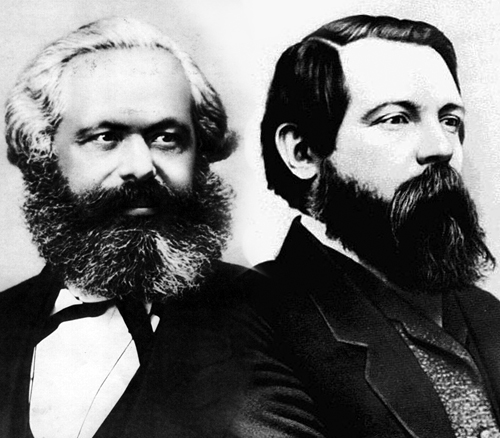I'm talking about conventional perspectives on the lumpenproletariat; early marxists clearly ran in different circles than I do.
A contemporary definition from the Communist Party of Texas:
Generally unemployable people who make no positive contribution to an economy. Sometimes described as the bottom layer of a capitalist society. May include criminal and mentally unstable people. Some activists consider them "most radical" because they are "most exploited," but they are un-organizable and more likely to act as paid agents than to have any progressive role in class struggle.
I can just feel the classism dripping out.
The wikipedia article about the phrase basically illustrates the idea of the lumpenproletariat as having been used as a punching bag by Marx, to create a foil to the proletariat in order to glorify the latter's revolutionary potential. From The Communist Manifesto:
The lumpenproletariat is passive decaying matter of the lowest layers of the old society, is here and there thrust into the [progressive] movement by a proletarian revolution; [however,] in accordance with its whole way of life, it is more likely to sell out to reactionary intrigues.
Anyway, I find this whole line of thinking precisely as deplorable as Marx, and Engels, and those who followed found the lumpenproletariat. Apparently Mao saw more revolutionary potential in the lumpenproletariat, believing they were at least educable.
It seems like the Black Panther Party looked toward the lumpenproletariat with some humanity, and they saw revolutionary potential in "the brother who's pimping, the brother who's hustling, the unemployed, the downtrodden, the brother who's robbing banks, who's not politically conscious," as Bobby Seale, in-part, defined the lumpenproletariat.
This feels much more honest and humane than the classical definitions, which I guess a lot of the major communist orgs in the u.s. still run with.
Finally, I'll just copy and paste the very short 'criticism' section from the wiki article as some food for thought:
Ernesto Laclau argued that Marx's dismissal of the lumpenproletariat showed the limitations of his theory of economic determinism and argued that the group and "its possible integration into the politics of populism as an 'absolute outside' that threatens the coherence of ideological identifications." Mark Cowling argues that the "concept is being used for its political impact rather than because it provides good explanations" and that its political impact is "pernicious" and an "obstacle to clear analysis." Laura Pulido argues that there is a diversity in the lumpen population, especially in terms of consciousness.
Anyway, just one of those 'holy shit' moments. Usually I vibe hard with classical marxism, but they can't all be hits. Wondering other peoples' takes.
But don't go telling me that my lumpen comrades are economically predestined to not be revolutionary socialists, because that analysis would run in direct contradiction to material realities ;)


Marx is cancelled. You hate to see it folks.
But seriously this just goes to show how we can't draw one to one comparisons with classical theory, our material conditions are entirely different and those who came after evolved and further developed those ideas to better suit the specific conditions they were faced with such as your examples of Mao and the Panthers. Literacy and information access and ease of distribution exists in a capacity unimaginable during Marx' time.
I was legit afraid in posting this I would get dogpiled with accusations that I’m trying to cancel Marx hahahaha
I totally agree with you here. Reading the OG marxists is really, really important. But, in the case of understanding the lumpen, reading contemporary marxists is arguably more important, or else you get groups like the Communist Party of Texas repeating centuries old, basically, hate speech haha. Which comes across as alienating and out-of-touch imo
Science, and therefore the science of socialism, has come a long way; and Marx would celebrate that .